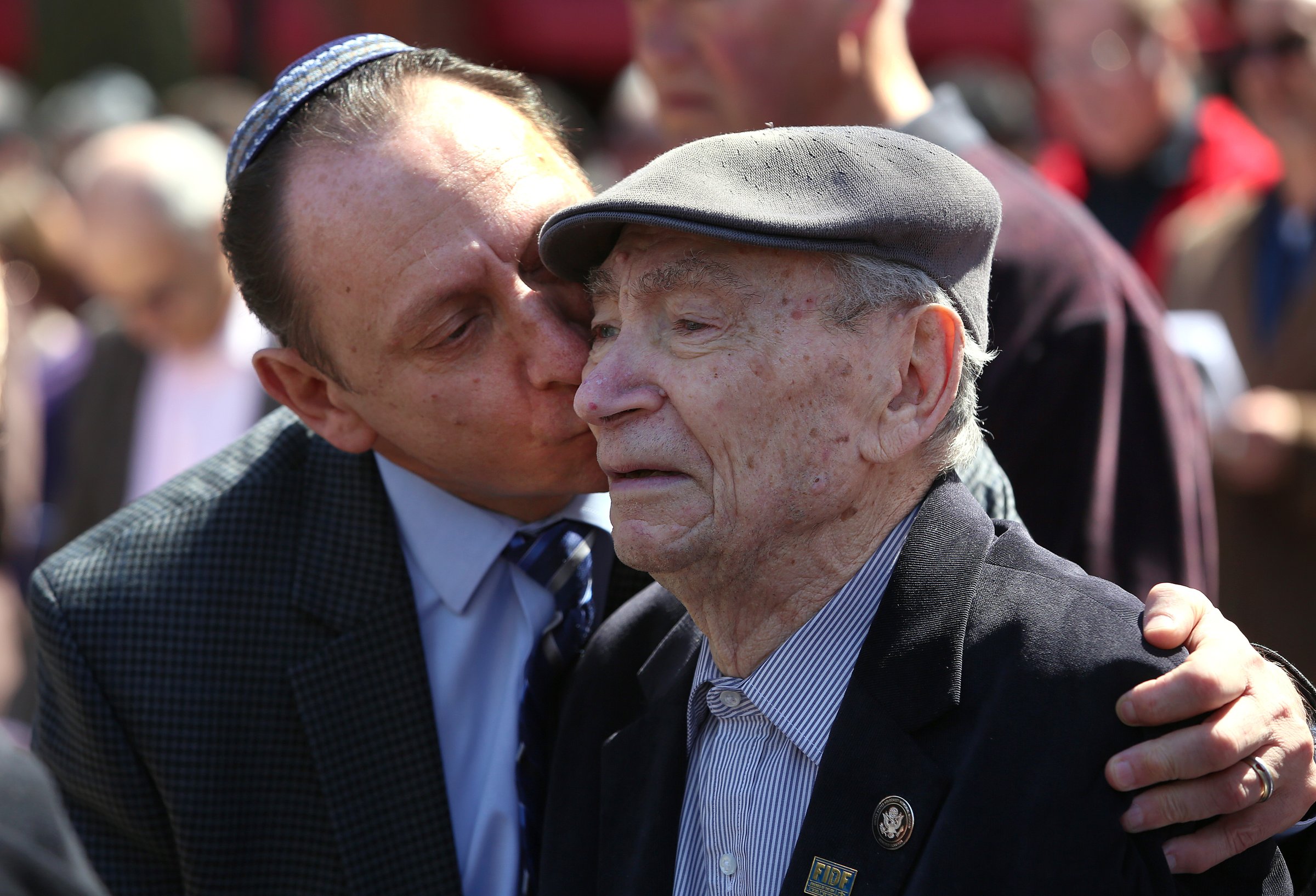
I cannot remember your experiences. When you are touched by something joyous or traumatic, the effect remains inside you. A great deal of culture—art, history, even science—is devoted to teaching what others have experienced, although the emotional impact is very difficult to attain. Brainstorm, a sci-fi thriller from the 80’s, imagined that scientists had invented a perfect recording system for sensations so that others could experience them. But until that day comes, we are left with images and words.
Today, on Holocaust Memorial Day, we remember how little we remember. Despite the many movies, books and survivor testimonies, there are the countless stories that have been lost and there are all the non-transmissible sensations. One who was not there can never know what it felt like to be there.
As the number of Holocaust survivors diminishes, we continue to seek ways to express the horror and the effects of focused evil. But even now it is hard to imagine the very premise of the Holocaust: that a culture as advanced as any in the world determined to slaughter every member of a group in its midst simply because that group existed, and that everywhere it conquered it found willing allies in the massacre.
So we read individual diaries like that of Anne Frank to remind ourselves of the potential that was erased, or Elie Wiesel’s Night to absorb the almost mystically demonic atmosphere of the camps, or we watch Schindler’s List to encourage ourselves with the heroic goodness that occasionally flourished. And in the end, we are left having learned and having felt, but without knowing what it was like.
That is true of every experience, of course—I do not know what it is like for my neighbor to walk his dog, for example. But with the Holocaust there are great stakes: preventing genocide is not only based on the knowledge that it is wrong, but the feeling that motivates us to action. Every charity will tell you that among its greatest benefactors are those who have experienced what the charity seeks to ameliorate, whichever illness or impoverishment. Yet with the shoah (the Hebrew name of the Holocaust), those who felt it are fast disappearing. And the true feelings of shock, powerlessness, humiliation, agony and loss goes with them.
As anti-Semitism remains widespread and denial still peeks its ugly head above the horizons of history, the emotions that motivate action are more urgent than ever. The best we can do is an act of intense empathy: to listen with our imaginations as well as our understanding; to realize that however many times we hear the stories they are a small fraction of the totality of the disaster and pain; to remember that the passing of the survivor generation gives us a special responsibility to sustain the memory.
As with every event in history, we are eventually left only with the story.
Wiesel tells a Chasidic tale whose lesson is vital for us and our age: When the great Rabbi Israel Baal Shem-Tov saw misfortune threatening the Jews, it was his custom to go into a certain part of the forest to meditate. There he would light a fire, say a special prayer, and the miracle would be accomplished and the misfortune averted.
Later, when his disciple, the celebrated Magid of Mezritch, had occasion, for the same reason, to intercede with heaven, he would go to the same place in the forest and say: “Master of the Universe, listen! I do not know how to light the fire, but I am still able to say the prayer.” And again the miracle would be accomplished.
Still later, Rabbi Moshe-Leib of Sasov, in order to save his people once more, would go into the forest and say: “I do not know how to light the fire, I do not know the prayer, but I know the place and this must be sufficient.” It was sufficient and the miracle was accomplished.
Then it fell to Rabbi Israel of Rizhyn to overcome misfortune. Sitting in his armchair, his head in his hands, he spoke to God: “I am unable to light the fire and I do not know the prayer; I cannot even find the place in the forest. All I can do is to tell the story, and this must be sufficient.” And it was sufficient.
The feelings will fade with those who endured the camps. But the world must continue to tell their story. It is not the same, but if it is done with empathy and understanding, God willing, it will be sufficient.
More Must-Reads from TIME
- Cybersecurity Experts Are Sounding the Alarm on DOGE
- Meet the 2025 Women of the Year
- The Harsh Truth About Disability Inclusion
- Why Do More Young Adults Have Cancer?
- Colman Domingo Leads With Radical Love
- How to Get Better at Doing Things Alone
- Michelle Zauner Stares Down the Darkness
Contact us at letters@time.com